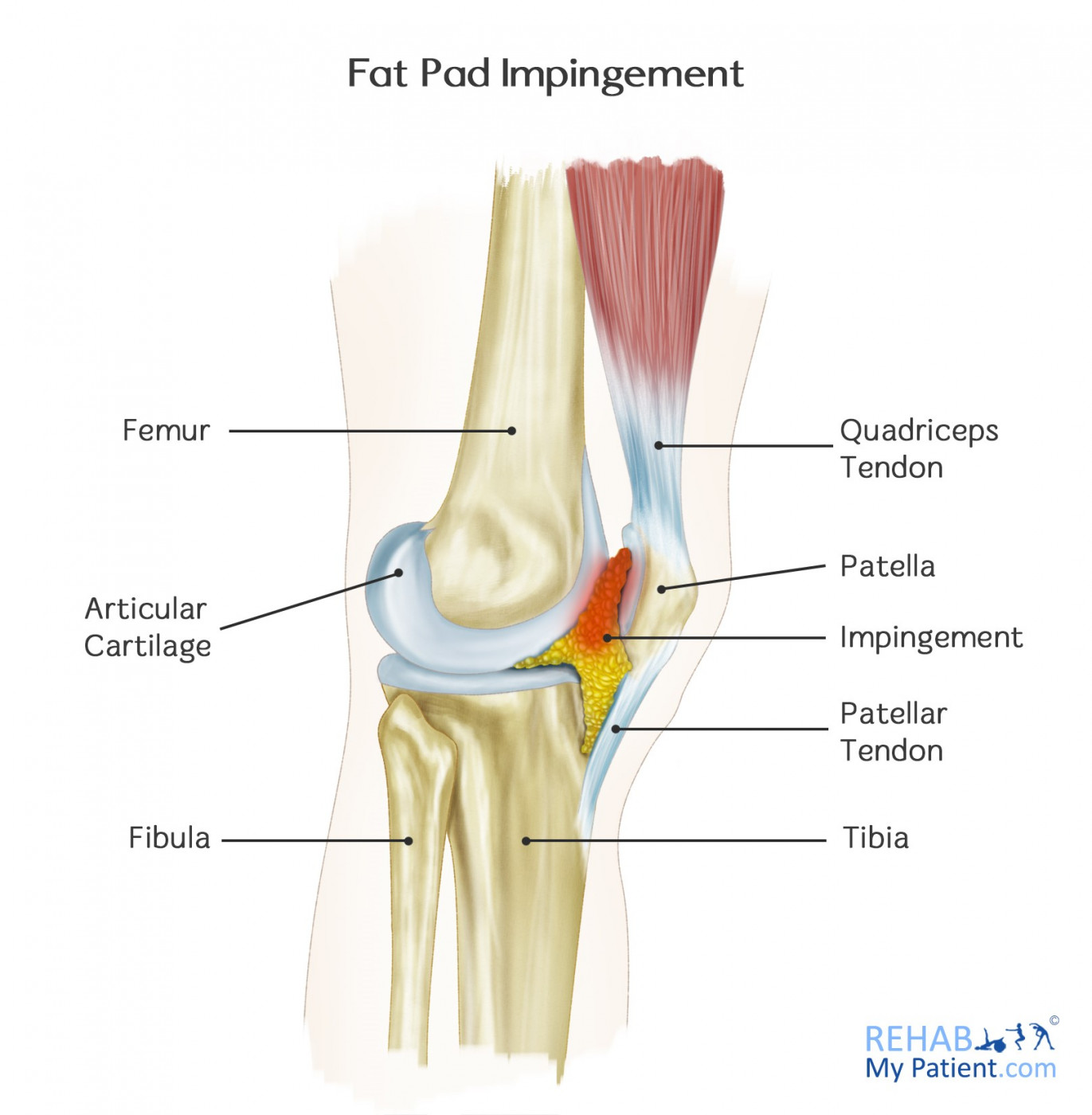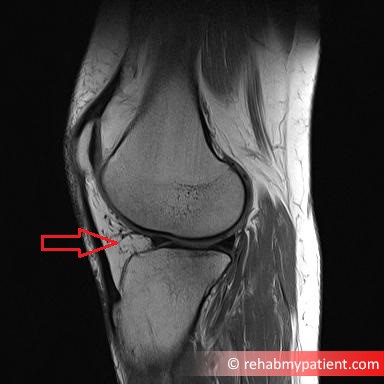Fat Pad Impingement
Opublikowano dnia 06th Feb 2018 / Opublikowano w: Kolano

After a direct blow to the kneecap, the fat pad might end up becoming impinged between the kneecap and the distal thigh bone. Since the fat pad is one of the most sensitive areas within the knee, it is thought to be quite painful. Knee pain is often nestles anteriorly on either one of the sides of the lower kneecap and tends to get worse when the knee joint is straightened. The fat pad is under continual irritation and could become inflamed.
Fat Pad Impingement Anatomy
Generally, pain is found in the front part of the knee. It can have any number of different causes, one of which is impingement of the fat pad. Fat pads are a mass of fatty tissue lying below the patella (kneecap) and behind the patellar tendon. The main function is to provide the knee with a cushioning from any direct impacts or pressure.


An MRI scan showing the fat pad in the knee
How to Treat Fat Pad Impingement:
- Rest
If you find that certain activities are making the pain worse, you need to cease engaging in those activities. Once the pain begins, you should avoid running as this will only make the pain worse.
- Ice
For those who are dealing with inflammation and pain in the kneecap, you can apply ice to the site to help minimize your symptoms. Try applying ice for 20 minutes at a time every couple of hours for the first two days.
- Exercise
Muscle strengthening exercises help to maintain the fitness and strength of the muscle groups that surround the kneecap. Begin a gradual exercise routine to help build the muscle and improve strength and flexibility all at the same time.
- Taping
Taping the kneecap might prove beneficial. One of the methods for doing this involves taping the upper surface of the kneecap to provide you with more space for all of the structures lying underneath of the lower surface (fat pad). This ends up causing a minimal amount of stress and impingement for the fat pad.
- Electrotherapy / Acupuncture
Electrotherapy such as ultrasound and TENS, as well as acupuncture can help reduce inflammation and pain around your knee cap.
- Surgery
Using key-hole arthroscopy surgery, the fat pad can be addressed and cured. Two tiny holes are made on either side of your kneecap, which lets the surgeon visualize the problem with a small camera and shaver to remove the impinged fat pad.
Tips:
- Chronic irritation or a direct blow can cause the fat pad to become swollen and inflamed. As a result, the bottom of the patella ends up pinching the fat pad, thus making it impinged.
- Individuals who have a kneecap that is posteriorly tilted at the inferior pole is more at risk of developing the condition.
- If you have an excessive amount of hyperextension in the knee, you are more susceptible to developing this condition.
- Pain tends to worsen with jumping, standing for an extended period of time or being in any other position where the knee is hyperextended.
- Fat pad impingement isn’t associated with locking, clicking or instability.
- Patellar tendonitis and fat pad impingement are often confused for one another.
Zapisać się
Zarejestruj się już teraz, aby skorzystać z bezpłatnego okresu próbnego!
Zacznij korzystać z Rehab My Patient już dziś i zrewolucjonizuj proces przepisywania ćwiczeń, aby zapewnić sobie skuteczną rehabilitację.
Rozpocznij 14-dniowy bezpłatny okres próbny